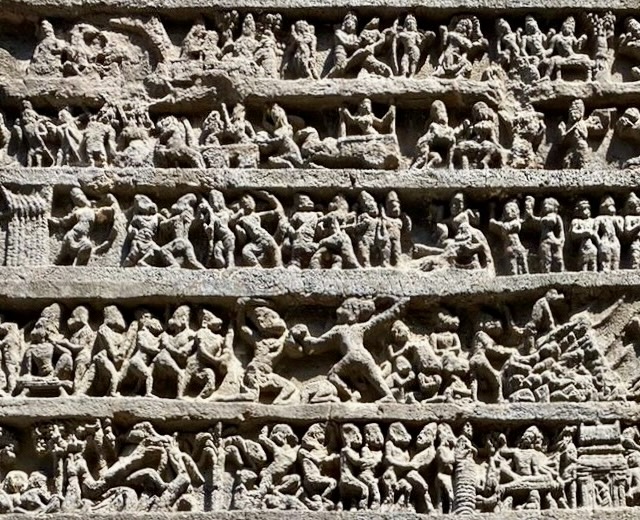India in 2016
June 2024

The unsettled few
In the last 12 years, this is the longest time I've spent in the country of my birth- 4 whole months in the first half of 2016. It was a refreshing reminder that to deal with the gruesome 'Indian summer' is a matter of getting used to. But something that has so positively moved me is the sentiment of change that has enveloped the country.
In September 2013 a controversial man from Gujarat swept into power with a clear majority. This was a nervous moment for many, especially the minority community who believed that they would not only be ignored, but perhaps even be stripped of their fundamental rights. The political history of Mr. Modi, tainted through an incident of communal violence in his home state of Gujarat, overshadowed any economic prosperity therein. However, this was not the community that needed to worry most. According to a global wealth report by Credit Suisse, 1% of India's population hold 53% of the country's wealth as of 2015. Recent policy making is indicating that the present government is hell bent on diluting this concentration of wealth in direct or indirect ways.
Growth! Growth! Growth!
Contrary to leftist beliefs, we have seen that accelerated GDP growth is the only way to eradicate poverty. India's ambitious target of 7.6% growth for 2016-17 is a result of many actions. Besides praying for a normal monsoon, the government aims to increase the contribution of the manufacturing sector to the GDP. A "Make in India" drive, that has albeit received a tepid response from foreign firms is a right step in promoting the country's manufacturing sector and bring in the required technical know-how. Remember that it was a foreign firm called Amazon which employed a couple of ambitious youth who went on to create their own e-commerce venture. Without a foreign firm's entry into the country, there wouldn't have been any 'knowledge-leaks' of the e-commerce business and the Bansals (who are not related) wouldn't have created a competent domestic e-commerce firm. Infrastructure is having its golden moment too. With approval processes being simplified, the government is successfully attracting foreign investment. Japanese ECA backed projects are mushrooming to help India catch-up with China's infrastructure miracle including projects such as the Mumbai-Ahmedabad high speed rail network. For the first time we built over 6000 kilometers of highways in 2015-16. Not to ignore the service sector, the tourism industry is all set to welcome ever increasing number of tourists who will no longer be deterred by inconveniencing visa processes.
Fix the leaks in the system
But rampant growth is countered by existing leaks in the system. The powerful business houses of India have been abusing the frail banking system dominated by PSU banks. No amount of rate cuts will yield results in promoting lending if the borrowers continue to default on such an enormous scale. Thats when the government decided to go after the willful defaulters, who are powerful. An additional measure of facilitating credit was the introduction of 'masala bonds' (rupee denominated bonds that can be raised overseas) which have few takers. Foreign investors believe that they are not compensated with enough return for assuming the currency risk of a falling rupee. For credit to flow fluidly, plugging the leaks in the banking system is imperative.
Dilute powers of the Shoguns
Medieval Japan had a very sophisticated yet evil way of governance. While the people believed that the emperor was all-powerful, behind the scenes it were the shoguns that were calling the shots to an extent that the emperor was just a puppet. India Inc for the longest time lobbied for industrial policy that favored domestic incumbents and tried its best to prevent foreign competition until the balance of payments crisis hit. Although certain sectors started to be liberalized so that the country could meet its foreign currency payment obligations, these Shoguns still enjoyed the previous administrations' favors. Mr. Modi's surge to power was again hailed as a blessing for these shoguns of India Inc. After all who better to head the state than an 'insider' from this community. But counter-intuitively, this nexus between India Inc and the government to secure favors at the expense of the benefit of the end consumer is being slowly broken. That is leading this very community to become very nervous. From its actions, the government seems to be in favor of policies through which the entire diaspora benefits, not just that 1% that was all set to get richer had the previous administration continued with its unfair policy making.
A word of caution
Yet, meaningless prohibitions such as meat bans, liquor ban, moral policing are raising the frustrations of certain sections of the society and threaten India's moment of glory. A nation with enviable economic progress, yet holding on to religious extremity is hell to live in. A country with deep rooted traditions like Japan has embraced the new age by letting both old and new cultures co-exist, most of the old part remaining merely symbolic. A staunchly catholic country like Spain had legalized gay marriage some 15 years ago. In my opinion, the minorities who were nervous with Mr. Modi coming to power have little reason to be. Economic prosperity reduces a population's reliance on religious differences to inspire conflict. And this government is making its priority just that. The policies are in the right direction for the common man to reap the benefits of a prosperous economy. But it is the shoguns that have a bigger problem with them.